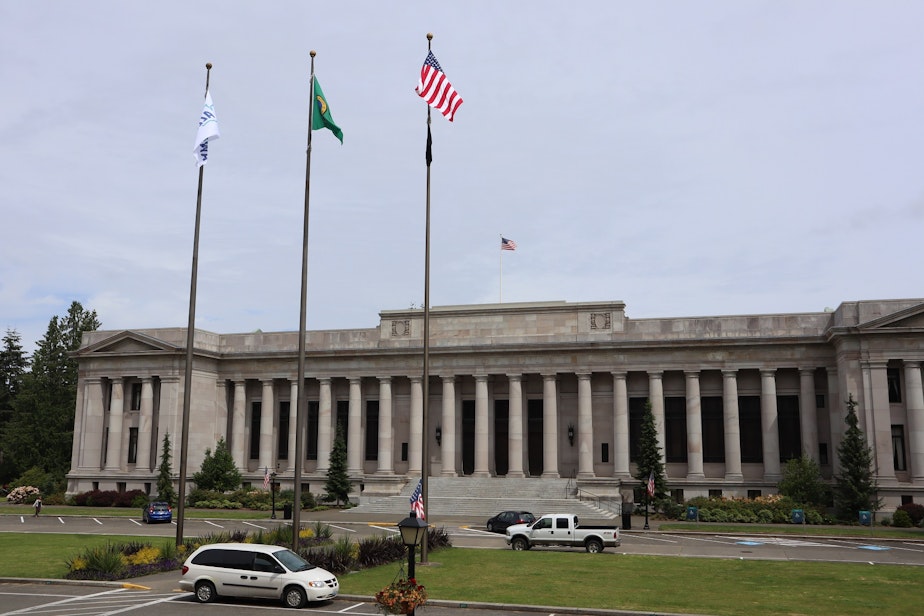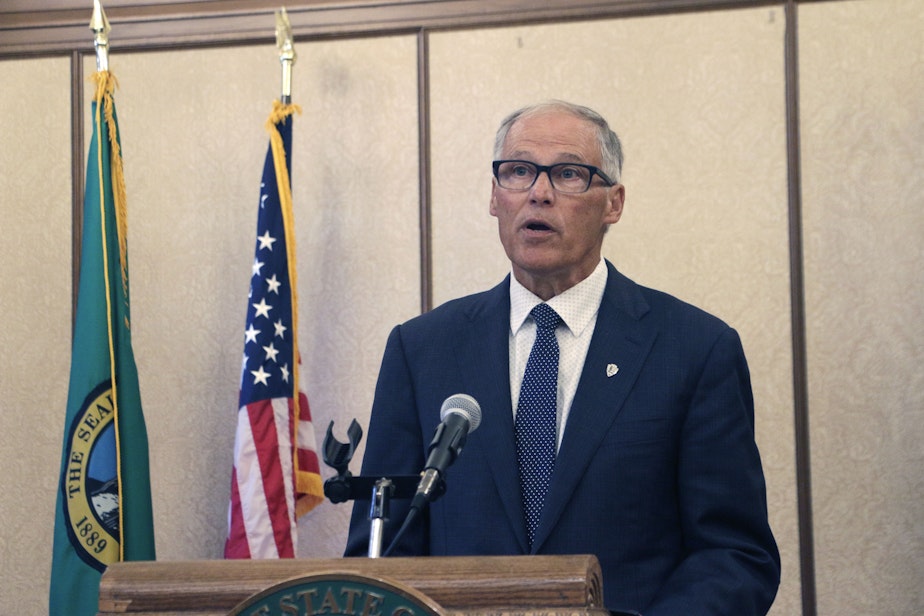Washington Supreme Court says pandemic eviction ban was legal. Landlords beg to differ

In March 2020, during the early days of the Covid-19 pandemic, Washington Gov. Jay Inslee instituted a temporary moratorium to help prevent residential evictions. It was scheduled to last 30 days.
Supporters of the move argued it was necessary to prevent a large-scale housing disruption during a health crisis. The measure was extended in various forms until October 2021.
It was a hot-button issue for landlords around the state. A group of them sued the governor, saying he had exceeded his constitutional authority. In a close 5-4 decision Thursday, the Washington State Supreme Court ruled that Inslee had not exceeded his emergency powers.
In his majority opinion, Chief Justice Steven González wrote that without the moratorium, "up to 790,000 people in Washington would have been evicted from their homes during the pandemic.”
The court's dissenting opinion argued that the state constitution doesn't allow the governor to suspend laws, and the moratorium essentially suspended the landlord's lawful right to evict tenants for unpaid rent.

Sponsored
In an email after the decision, an Inslee spokesperson wrote, “We appreciate the justices’ careful consideration of this matter. The eviction moratorium was an important piece of our life-saving efforts during the worst of the pandemic.”
Landlord advocacy groups say they're disappointed by the outcome. They agree with the dissenting opinion that the state essentially nullified their rights.
They say as the ban stretched on, they grew alarmed. With added regulations, an already complicated business model became more difficult to manage. Some say they found they had little or no recourse to challenge tenants who stopped paying rent.
Sean Flynn is the president of the non-profit Rental Housing Association of Washington. The association, which represents small-scale landlords, filed an amicus brief in the case.
Sponsored
Flynn said, while he understood the need for the temporary eviction ban in the early days of the pandemic, the year-and-a-half-long moratorium drove many out of the market, especially in Seattle.
"It felt punitive," Flynn said. "No segment of the population in terms of industry was treated the way housing providers were. We didn't tell grocers that they couldn't collect grocery money. Everyone got paid but the housing providers, and when we finally did get paid, it was pennies on the dollar. And most of us took it because it was better than no money."
Flynn argued that independent landlords provide the middle-income housing that cities like Seattle need, and foreclosing a landlord's ability to collect rent and recover property for 18 months was a step too far without compensation, even in an emergency.
He said the ruling is disheartening for his membership, but other pending cases may provide relief.
Former landlord Ben Ohmart and his wife were renting out a single-family home in Seattle when the pandemic hit. They had plans to sell it when the lease ran out. Ohmart said their tenants stopped paying rent and then refused to move when their lease was up. He said his research told him the state measure allowed an eviction in that case. He blamed Seattle regulations instituted by then-Mayor Jenny Durkan for what happened next.
Sponsored
"We basically got stonewalled from every city official, either no response or we got a blanket letter saying that this is for the good of the community that our tenants were not being evicted," Ohmart said.
After their attempts to evict their tenants failed, Ohmart said he and his wife had to sell their home at a loss to an investor willing to take on the risk of non-paying tenants.
Ohmart was part of a group called Seattle Grassroots Landlords that formed at the beginning of the pandemic. The group is made up of independent, small-scale landlords.
They say Seattle officials have not listened to the perspectives of small-scale housing providers as they've instituted new regulations, which lean heavily toward the rights of renters. They argue that Seattle had one of the lowest eviction rates in the nation, but new regulations and court delays broke the eviction system.
"That's the reason I'll never own a small business in the City of Seattle again," Ohmart said.
Sponsored
Seattle Grassroots Landlords say they'll be keeping an eye out for recommendations in the next Seattle City Auditor's Rental Registration and Inspection Ordinance report.




